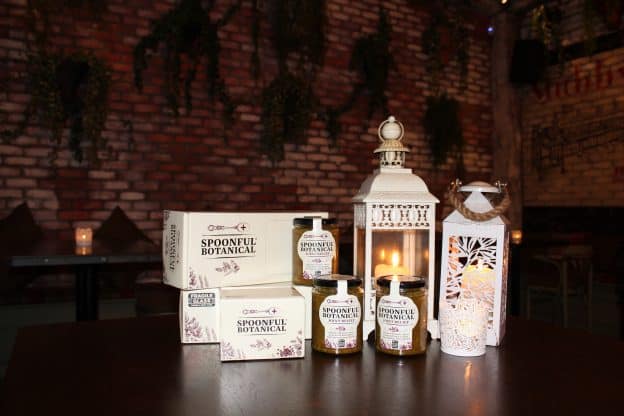The Importance of Ethically Sourced Herbs and Spices in Natural Food Supplements

For many individuals and families, natural food supplements have become a staple in their daily routine.
Along with high quality, buyers are looking at sustainability when they source these precious goods. Sustainability has become an important part of modern living and this is well reflected in the food sector. The demand for herbs and spices is one of the highest among sustainable products, but achieving this standard is a task with its challenges.
Spices and Sustainability – Natural and with Conscience
The spice industry is currently run by millions of small-scale farmers who face poverty and food insecurity among several other issues. Those are a few of the many reasons why several spice farmers have switched to producing high-value crops or working different jobs. Unfortunately, this switch has a raised a plethora of new concerns: maintaining long-term supply, identifying the exact origins of our spices, and food safety. There are several environmental implications of current unsustainable farming, including heavy chemical and pesticide use, poor wastewater management and unethical labour conditions.
These are some of the many hurdles faced by the spice industry at the moment. Desperate times have called for desperate measures. The industry is embracing sustainability as more than just a buzz word. It’s the only way to ensure the future of the spice trade.
SOS: Save Our Spices
Without sustainable practices, some well- known spices could face an uncertain future. These could include:
- Black Pepper: This is one of the most widely used spices in the world and is manufactured in several different countries with different farming standards. However, significant fluctuations in its trading price have made it an unreliable income source for its farmers.
- Cardamom: Heavy flooding in production regions like Kerala, India have caused a large supply shortage. The damage to the crops have raised the prices on these spices, and in some cases, caused irreversible damage to the geographical landscape.
- Cumin: Cumin has been in high demand for the past few years, particularly as an export item bound for Europe. However, climate change has affected crop growth and resulted in short supply. Hence, cumin has become more expensive and sustainability standards have taken a back seat to increase supply growth.
How Can the Spice Industry Become More Sustainable?
We have already taken a step in the right direction with increasing demand for sustainability. An increase in consistent demand at a fair price will help small farmers maintain their production and adopt sustainable practices. These practices, such as eliminating the use of pesticides and better wastewater management, will have a positive impact on the environment. It’s a cycle that will benefit the farmer, the environment and of course, the quality of the crop.
[1] Fairtrade is an important designation for ethical and sustainable practices and has played a growing role in improving coffee and chocolate growing practices. The mark means that those ingredients have been produced by small-scale farmer organisations or plantations that meet Fairtrade social, economic and environmental standards.
While the Fairtrade designation applies to several other industries including sugar, fruit, flowers and cotton, it has yet to extend into spices. In its absence, organisations like the Sustainable Spices Initiative (SSI) are working to standardise sustainable practices amongst small spice farmers. They believe in education and awareness, as well as project based assistance to help farmers adopt sustainable practices. While the organisation works globally, they also have two local chapters: SSI-Vietnam and SSI-India.
Sustainability on a Personal Level – Choose Natural with Ethically Sourced Ingredients
As a consumer, it’s common to feel helpless or isolated from the sustainability process. However, we can also play a large role in leading and supporting sustainability in this industry.
Here are some of the steps we can take as consumers:
- Favour Sustainable Produce over Price: Sometimes products that are the outcome of sustainable practices will tend to be slightly more expensive. However, that added cost might ensure ethical and sustainable production practices.
- Identify with Ethical Brands that Match your Priorities: Find and support brands that believe in the same environmental or social goals as you do. Often, these might be local sellers. Support them by purchasing their products.
- Buy in Moderation: Before making hasty purchases, ask yourself “Do I really need this?” “How much will I use this and what value does it bring to my life?”
- Cost per Use: With clothing, technology and other material purchases, consider how much use you will get out of that item. If you believe that you will use it frequently, it’s likely to be a well-earned purchase.
Spoonful Botanical – Our Commitment to Sustainability
Our mission is to implement natural food products using herbs and spices for our customers. So while it may seem easy for us to take a back seat, it’s only right to play an active role in ensuring the sustainability of the spices and herbs that make up Spoonful Botanical. Our recipe is based on the knowledge acquired through Indian folklore, passed down from generation to generation. Similarly, the farms we source our ingredients from have been producing spices such as cinnamon, cardamom and cayenne for generations.
Respecting the environment is also a core tenet of our mission at Spoonful Botanical. We believe that our role as humankind is to protect and preserve the environment. In recent years, we are mindful that the environmental crisis is now more severe than ever. It’s only fair that we contribute towards an ethical and sustainable spice industry. We believe that any action towards sustainability is a step towards ensuring a healthy planet and a better future for the next generation.
Here at Spoonful Botanical, we love to share information about the ethically sourced spices and botanicals that go into our food product.
Feel free to call us or contact us online to learn more about our natural food supplements.
[1] http://fairtrade.ca/en-CA/What-is-Fairtrade/What-Fairtrade-does





